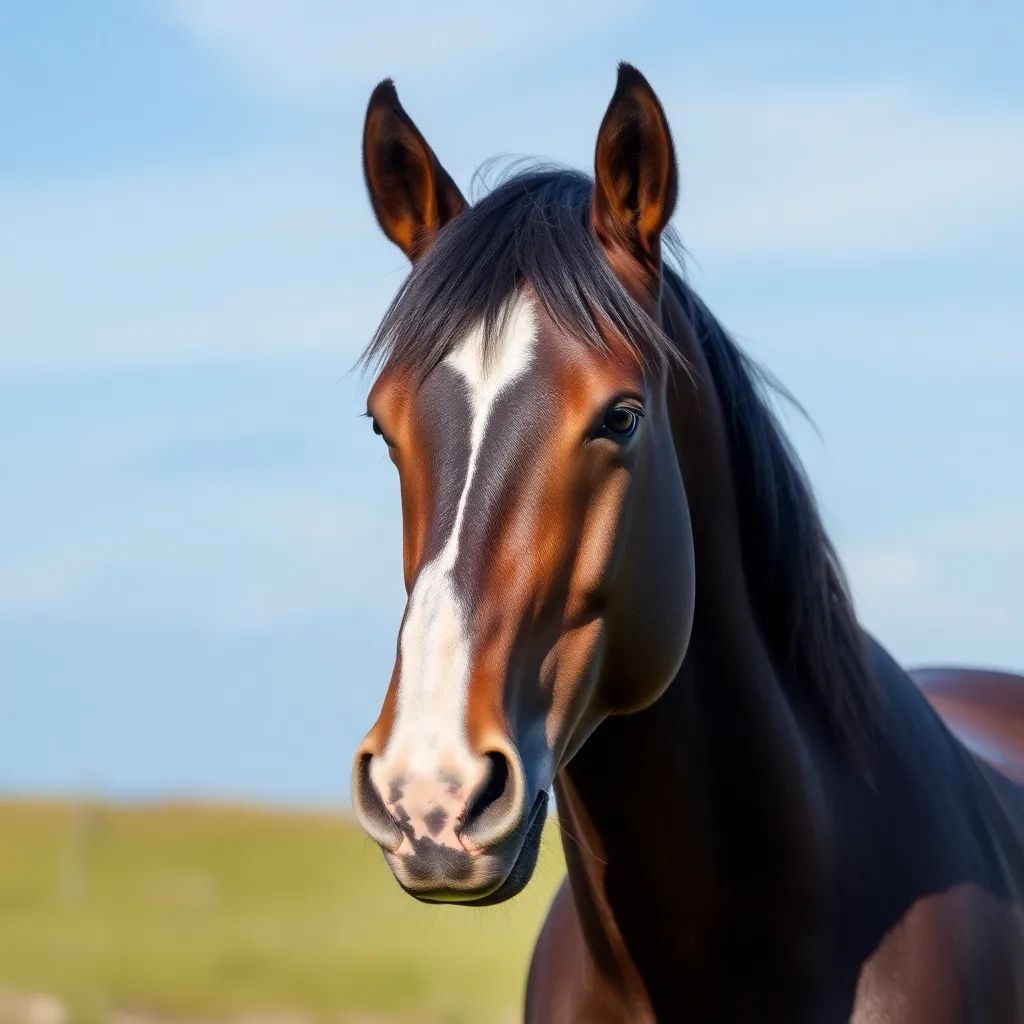

Flint, Beloved Wild Stallion of North Carolina's Outer Banks, Passes Away at 38
COROLLA, N.C. — A remarkable chapter in the history of the Corolla Wild Horses has come to a close with the passing of Flint, a legendary wild stallion beloved by many. The news has hit the local community hard, as Flint was not just an elder among the herd, but a nuanced character who left a lasting legacy on the beautiful Outer Banks.
Flint was estimated to be in his late 30s, which is an impressive feat for a wild horse, especially on North Carolina’s barrier islands where most horses, known as “bankers,” live much shorter lives. According to experts, the average lifespan of these horses is around 15 years less than what Flint managed to achieve.
What truly set Flint apart was his undeniable appeal to the mares in the area. According to herd manager Meg Puckett, he was quite the stud throughout his life. “He was pretty prolific,” she shared. “Not all stallions are able to do that, and it takes a strong horse to maintain a harem and produce foals for as long as he did.” The impressive part? Flint was still attracting mares until about a year ago, defying age expectations.
Flint’s legacy goes deeper than his breeding capabilities. His age and condition suggest that he came from a very old bloodline, which is notable given that these horses are descendants of the Spanish explorers who roamed the coast over 500 years ago. Flint stood as a living link to that history, making him a foundation stallion for the Corolla herd.
The only way to gauge a wild horse’s age is through the wear on their teeth, and Flint’s was a testament to his advanced years; he had some of the oldest teeth ever seen by the Corolla Wild Horse Fund. Unfortunately, with old age comes hardships, and Flint was suffering from various ailments that ultimately led to his demise.
On October 10, a sad alert was posted, revealing that Flint was showing signs of approaching the end of his life. The Corolla Wild Horse Fund filled the community in on his condition, noting he had lost significant weight and was increasingly sluggish. A veterinarian monitored him weekly, and the team was emotionally prepared for the difficult decision of euthanizing him to prevent needless suffering.
On October 21, the tough moment arrived. Flint’s health had deteriorated to the point where he was deemed listless, with X-rays revealing he had lost all functional teeth and was battling a severe sinus infection. “At that point, there was no question that the best thing for Flint would be to help him pass safely and peacefully,” Puckett shared.
Flint was buried in a serene corner of the woods at a farm that the Corolla Wild Horse Fund used for horses deemed too fragile to go back into the wild. “Our goal is for each and every Corolla Banker to live wild and free, and that means we must also do our best to ensure they die wild and free,” the fund expressed in a heartfelt statement. “A long, well-lived life is something to celebrate, and Flint certainly accomplished that.”
Though Flint may no longer roam the Outer Banks, his story will live on in the hearts of many. Through his countless offspring and the memories shared, his spirit will continue to resonate, a reminder of the wild beauty and resilience of nature. In a world of uncertainty, Flint reminded us all of the richness of life — one hoofprint at a time.
News Summary A new AI-powered paywall has been launched, showing a 6% rise in average…
News Summary The California Bar Exam has faced scrutiny after it was revealed that many…
News Summary President Trump’s recent announcement of a 145% tariff on Chinese goods has sparked…
News Summary New Jersey is battling a large wildfire called the Jones Road Wildfire, which…
News Summary A coalition of twelve U.S. states, led by New York, is taking legal…
News Summary North Carolina introduces the Prevent Environmental Hazards Act, a bipartisan effort to address…